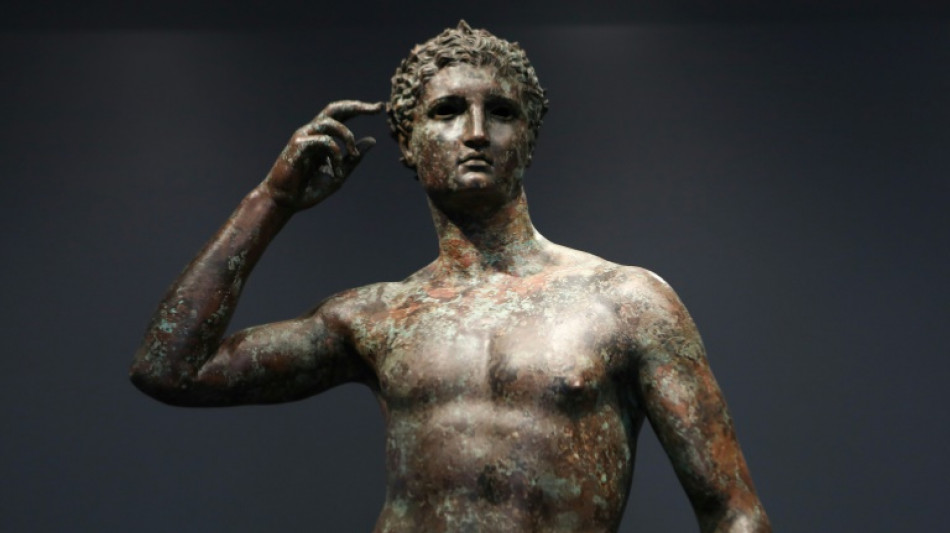
-
 Paul McCartney becomes UK's first billionaire musician
Paul McCartney becomes UK's first billionaire musician
-
Energy transition risks critical mineral shortage: IEA

-
 'Fight of the century': Fury, Usyk in rare undisputed clash
'Fight of the century': Fury, Usyk in rare undisputed clash
-
Hurricanes survive fightback to regain Super Rugby top spot

-
 'Balaclavas and big sticks': New Caledonia tourists trapped by riots
'Balaclavas and big sticks': New Caledonia tourists trapped by riots
-
Thiago, Matip to leave Liverpool at end of season

-
 Israel says S.Africa 'genocide' case at UN court 'totally divorced' from facts
Israel says S.Africa 'genocide' case at UN court 'totally divorced' from facts
-
Gaza fighting rages after Israel vows to intensify Rafah offensive

-
 Hong Kong, Shanghai stand out in Asia on China property support
Hong Kong, Shanghai stand out in Asia on China property support
-
IEA warns of key energy mineral shortage risk

-
 Israel says S.Africa 'genocide' case 'totally divorced' from facts
Israel says S.Africa 'genocide' case 'totally divorced' from facts
-
Defender Matip to leave Liverpool at end of season

-
 Musk confirms Twitter has become X.com
Musk confirms Twitter has become X.com
-
Gomes eyes becoming first Portuguese coach to win CAF Cup

-
 Crisis-ridden Boeing prepares for turbulence at annual meeting
Crisis-ridden Boeing prepares for turbulence at annual meeting
-
Hong Kong, Shanghai stand out in Asia after China property move

-
 Coppola faces press after epic 'Megalopolis' splits Cannes
Coppola faces press after epic 'Megalopolis' splits Cannes
-
China offers to buy up commercial housing to boost property market

-
 US military says first aid delivered to Gaza via temporary pier
US military says first aid delivered to Gaza via temporary pier
-
Muslim professionals quit 'hostile' France in silent brain drain

-
 China cuts rates, could buy up commercial housing to boost property market
China cuts rates, could buy up commercial housing to boost property market
-
Costner, Gere, Demi Moore: Hollywood icons on Cannes comeback trail

-
 Brazil to host 2027 Women's World Cup as Gaza overshadows FIFA meeting
Brazil to host 2027 Women's World Cup as Gaza overshadows FIFA meeting
-
Palestinians call for Israeli ban as Gaza war spills into football
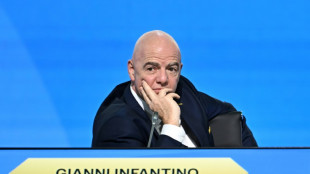
-
 Crisis-ridden Boeing hopes for quiet annual meeting
Crisis-ridden Boeing hopes for quiet annual meeting
-
Vienna Festival director Milo Rau hits back at anti-Semitism accusations
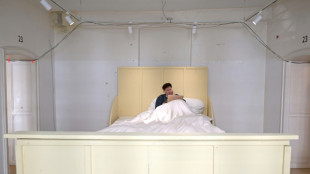
-
 China says could buy up commercial housing to boost property market
China says could buy up commercial housing to boost property market
-
Rapidus 'last opportunity' to put Japan back on global chip map
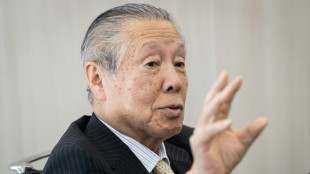
-
 Despite Western pressure, China in no hurry to reduce Russia support
Despite Western pressure, China in no hurry to reduce Russia support
-
For sale: unique piece of land in strategic Arctic archipelago

-
 La Rochelle in the spotlight as tight Top 14 run-in commences
La Rochelle in the spotlight as tight Top 14 run-in commences
-
Three key issues to watch for in La Liga this weekend

-
 Departing Hayes urges Chelsea to seize 'second chance' in WSL race
Departing Hayes urges Chelsea to seize 'second chance' in WSL race
-
Leverkusen eye 'immortality' as Union fight for final day survival

-
 Klopp leaves lasting legacy after restoring Liverpool to elite
Klopp leaves lasting legacy after restoring Liverpool to elite
-
Putin in trade push on final day of China trip
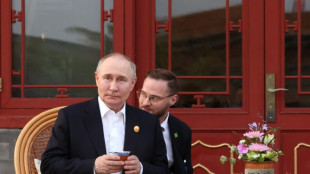
-
 Timberwolves crush Nuggets to stay alive in NBA playoffs
Timberwolves crush Nuggets to stay alive in NBA playoffs
-
Taiwan president takes office under close scrutiny

-
 Israel to hit back at 'genocide' claims at UN top court
Israel to hit back at 'genocide' claims at UN top court
-
Chinese officials meet to mull support for developers: Bloomberg

-
 'Hindu nation': Religion trumps caste in India vote
'Hindu nation': Religion trumps caste in India vote
-
Asian stocks mixed after Wall St, Europe retreat from records

-
 Taiwan's Lai to bolster 'porcupine' defence against China threat
Taiwan's Lai to bolster 'porcupine' defence against China threat
-
Dominican Republic to vote in poll dominated by Haiti crisis

-
 The Dominican Republic: from Columbus to cruise ships
The Dominican Republic: from Columbus to cruise ships
-
Forced to give birth after rape, Honduran woman seeks UN remedy

-
 Reddit gives OpenAI access to its wealth of posts
Reddit gives OpenAI access to its wealth of posts
-
Turkey court jails Kurdish leader for 42 years over 2014 unrest

-
 US plans to end leasing in its largest coal-producing region
US plans to end leasing in its largest coal-producing region
-
Kim's sister denies N. Korea exporting weapons to Russia


European court upholds Italy's claim to Greek bronze in US museum
Italy is allowed to confiscate an ancient Greek bronze fished from the Adriatic in the 1960s and now in the Getty Museum in Los Angeles, Europe's top rights court ruled Thursday.
Representing a nude athlete and known in the United States as "Victorious Youth", the statue vanished following its 1964 discovery until its 1977 purchase by the museum. The Getty has since refused to return it to Italy.
The museum had appealed to the Strasbourg-based European Court of Human Rights (ECHR) after Italy's top tribunal in 2019 upheld an Italian confiscation order for the bronze.
Following Thursday's ruling, Getty can still in the next three months ask for the case to be reconsidered, but the court does not have to grant that request.
Rome has been trying to recover the 6th-Century BC statue since it was auctioned for $3.9 million in Germany. It also tried to prevent its transfer to the United States via Britain.
"We've been working flat out" to get it back, Italian Culture Minister Gennaro Sangiuliano said. Rome no longer lent works to museums with which it has disputes, he added.
But the sculpture, attributed to Greek artist Lysippos, has remained on display at the Getty Villa in Los Angeles' high-end Pacific Palisades district.
The museum argued that attempts to confiscate it went against the fundamental right to property protected in the Protocol to the European Convention on Human Rights.
- 'Negligence or bad faith' -
In their ruling, Italian judges had said the statue belonged to the country's cultural heritage because of its recovery by an Italian-flagged ship.
They also pointed out the "continuum between Greek civilisation... and the subsequent Roman cultural experience".
The ECHR, rejecting Getty's appeal, agreed that Rome "had reasonably demonstrated that the statue had been part of Italy's cultural heritage and had also legally belonged to the state.
"The court stressed that an acquirer of property had to carefully investigate its origin in order to avoid possible confiscation claims," it added.
"The Getty Trust, by purchasing the statue in the absence of any proof of its legitimate provenance and with full knowledge of the Italian authorities' claims over it, had disregarded the requirements of the law, at the very least negligently, or perhaps in bad faith," the court added.
There was therefore "a clear legal basis... for the confiscation order regarding the statue".
Judges also pointed to international agreements protecting against illicit export of cultural goods, such as a 1970 convention by UN cultural body UNESCO.
Italy has already clashed with the Getty Museum, striking a deal with it in 2007 for the return of 42 ancient objects Rome said had been stolen and illegally exported.
Founded by oil billionaire John Paul Getty, the museum is backed by the world's wealthiest art foundation, whose assets were estimated at several billion dollars in 2009.
S.Keller--BTB
